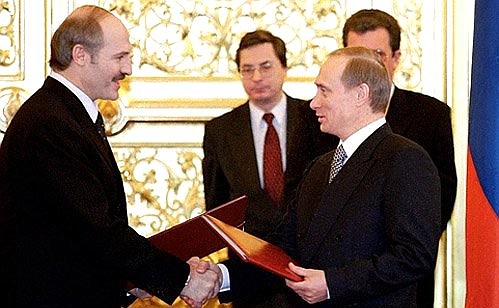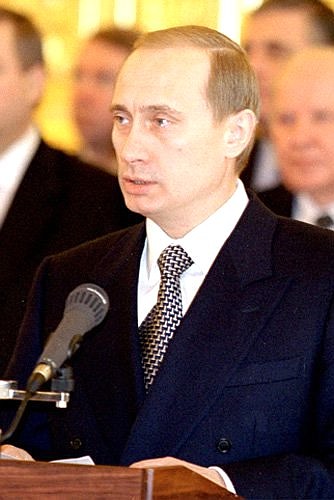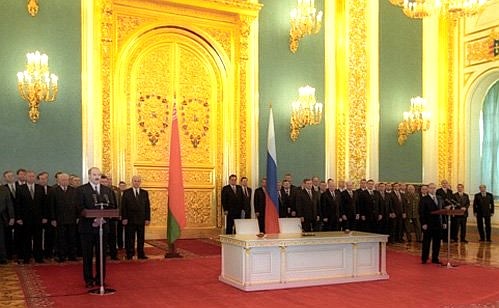At a ceremony for exchanging instruments of ratification, Mr Putin said that the main aim of building a Union State of Russia and Belarus was to improve the life of ordinary Russians and Belarusians.
He also said that the treaty was in the interests of the two powers and embodied the desire of the two peoples to live and work together for the common good.
Mr Putin indicated that a lot of difficult practical work lay ahead to translate the treaty into life, and the key phase of that work would be to establish a common legal framework for the Union and to identify common economic, defence and cultural areas of cooperation. The acting Russian president expressed his view that the treaty, which would enter into force on January 1, 2001, was necessary and would help to promote the unity of the two countries.
Mr Putin expressed special thanks to Russia’s first president, Boris Yeltsin, and Belarusian President Alexander Lukashenko for their contributions to the drafting of the treaty.
The Belarusian leader, in turn, described the exchange of instruments of ratification and the treaty’s entry into force as acts of historical justice that would help piece together the torn-up fabric of a once united country.
According to Mr Lukashenko, it was necessary to begin practical work, and the results of that work would depend above all on economic integration.
The Belarusian president highlighted the big contributions made to the unity of the two peoples by members of parliament and heads of both states. Mr Lukashenko expressed his conviction that Mr Putin was and would remain an active supporter of the union of the two fraternal peoples.


